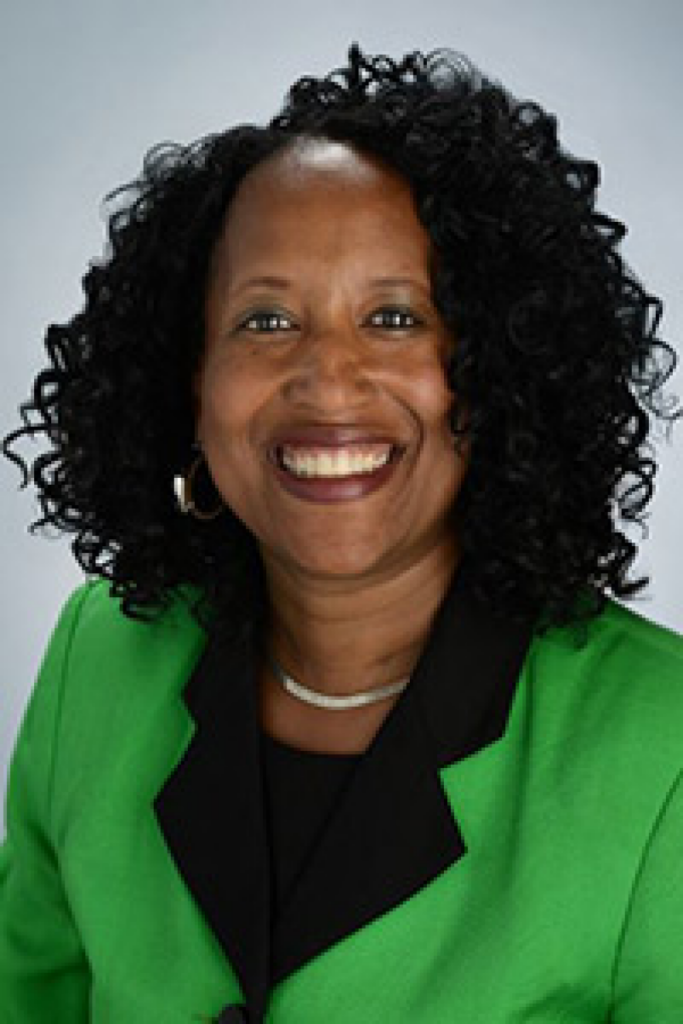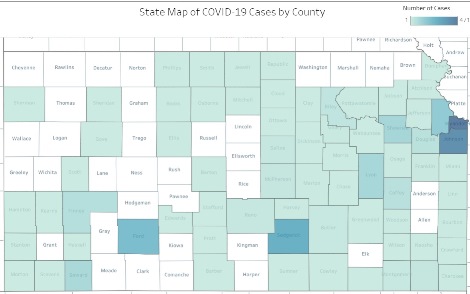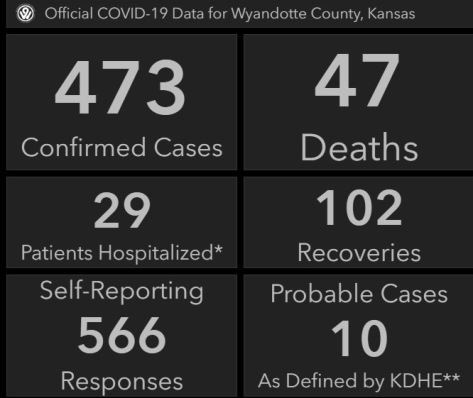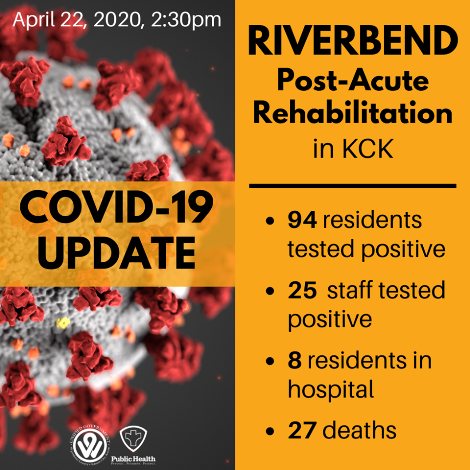by Nomin Ujiyediin, Kansas News Service
Lawrence, Kansas — The more Kansas tests people for the coronavirus, the clearer it becomes that black Kansans are being disproportionately affected — a sobering trend that is true in communities across the United States.
Black Kansans are three times more likely to test positive for COVID-19 than white people, and more than seven times more likely to die from the virus. Latinos are also about three times as likely to test positive for COVID-19.
The data mirrors trends seen in across U.S. cities like New York, Chicago and Detroit, as well as other states.
Kansas’ data points also follow the lines of racial disparities in health care treatment and access. Black Americans have higher rates of obesity, diabetes, asthma and other health conditions.
“These disparities are nothing new,” said Crystal Lumpkins, an associate professor at the University of Kansas Medical Center who studies public health communications.
The Kansas Department of Health and Environment has cautioned that its coronavirus race data is incomplete, because of “the high number of individuals tested with no race and ethnicity reported.”
In an email, spokeswoman Kristi Zears said the agency needs more data on race and ethnicity from test providers.
“KDHE is working to expand testing in areas throughout Kansas,” she said.
But outreach to black communities should have happened earlier, Lumpkins said. State and county governments, health departments and medical providers hadn’t spent much time reaching out to black communities even before the pandemic.

‘We don’t feel like we’re included’
Lumpkins said her community in Wyandotte County, which has one of the largest black populations in the state, didn’t get much information about the pandemic early on. Now, the county has the most cases in Kansas, and nearly half of its COVID-related deaths are black individuals.
Things could have been different, Lumpkins said, if officials had more proactively consulted her community in the preceding years.
“One of the things I’m hearing from my community members is that many times, we don’t feel like we’re included,” she said. “It comes across as very tangential or something that is done after the fact.”
Lumpkins also said the lack of communication had allowed rumors to spread — such as a myth that African Americans couldn’t get the coronavirus.
“African Americans, because of history, have been more likely to not trust the information from those types of organizations,” she said. “It is really incumbent upon these entities to recognize that.”
Black communities across the country tend to have less access to amenities that improve health, like grocery stores and outdoor recreation. Many black Americans also have to travel farther to access hospitals and pharmacies.
That can lead to poorer health outcomes overall, said Rashawn Ray, a fellow at the Brookings Institute and sociology professor at the University of Maryland.
“Structural factors undergird pre-existing health conditions — and people’s exposure to COVID-19,” Ray said.
‘There’s not been any urban renewal’
Broderick Crawford, who’s the president of the New Bethel Church Community Development Corp. in Kansas City, Kansas, believes “80 to 90% of a person’s health does not occur inside of a medical facility at a clinic. It happens outside of that.”
Crawford said the response from health officials and hospitals has been inadequate, partially due to discrimination against the black community. His neighborhood doesn’t have a grocery store, which means less access to healthier foods. There aren’t many jobs nearby that people can walk to, and some may not feel safe walking or exercising outside at all.
“There’s not been any urban renewal in this particular area,” he said. “It’s those kinds of things that have negatively impacted our community.”

Data from the Bureau of Labor Statistics shows that higher percentages of black people work in the service, transportation, production and shipping industries than other groups.
“We put these factors together and it leads to blacks being more exposed,” Ray said. “We also know that black Americans are more likely to be in these new ‘essential service’ jobs.”
Overall, Kansas needs to obtain and provide more demographic information when it comes to coronavirus testing, Ray said, including gender, age and location.
“We need to collect more data,” he said, “then be able to funnel resources, testing and triage centers to predominantly black neighborhoods that are under-resourced.”
Nomin Ujiyediin reports on criminal justice and social welfare for KCUR and the Kansas News Service. You can follow her on Twitter @NominUJ.
The Kansas News Service is a collaboration of KCUR, Kansas Public Radio, KMUW and High Plains Public Radio focused on health, the social determinants of health and their connection to public policy. Kansas News Service stories and photos may be republished by news media at no cost with proper attribution and a link to ksnewsservice.org.
See more at https://www.kcur.org/news/2020-04-23/black-kansans-at-least-7-times-more-likely-to-die-from-coronavirus-than-white-kansans.



